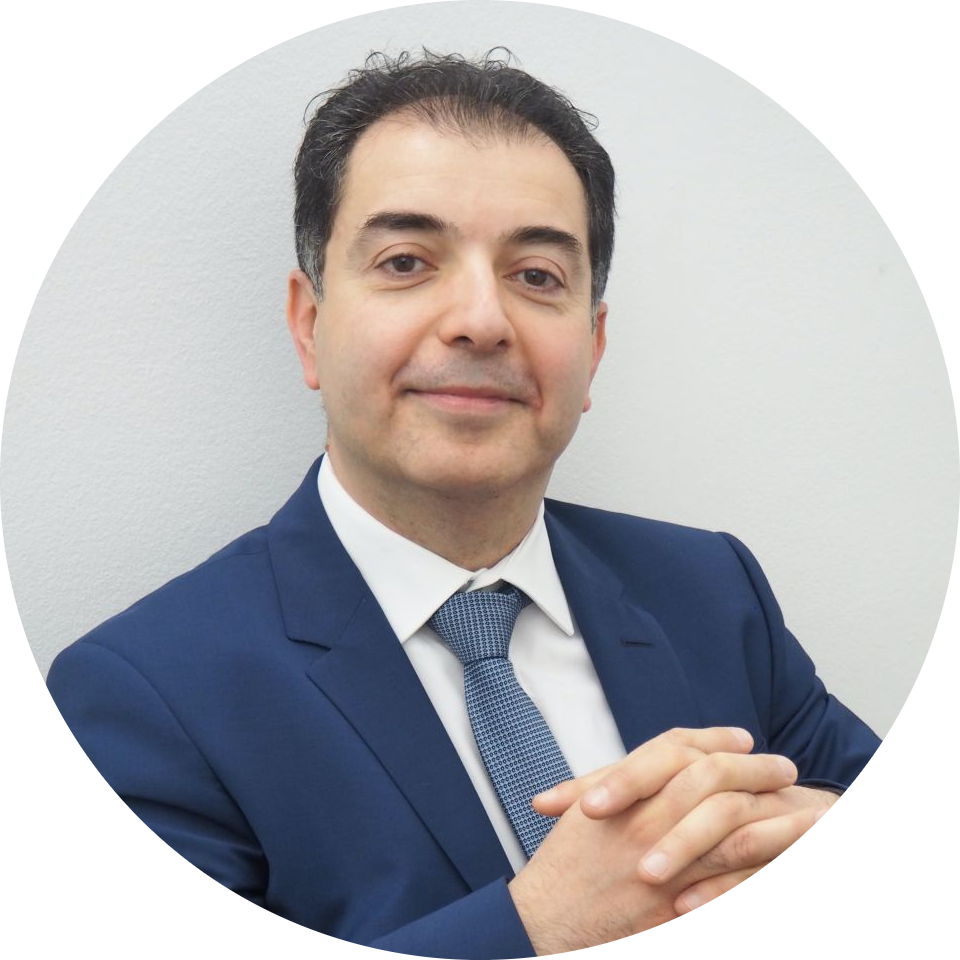Cataracts And Driving: How Cataracts Affect Driver Safety
Cataracts occur when the lens on your eye becomes blurred or clouded, leading to impaired vision. When it comes to driving, being able to see properly is essential. So what are the key considerations for drivers with cataracts?
In this article, we cover some essential information on cataracts, before exploring how they can affect your driving.
What are cataracts?
Cataracts are cloudy patches that develop in the lens, which is the small transparent disc inside the eye. These patches typically become larger over time, which can cause blurred vision and even lead to blindness. Cataracts usually affect both eyes but can occur in one eye.
The majority of the time, cataracts are a natural part of aging, although they can also be caused by injuries and illnesses.
How common are cataracts?
Cataracts are more common in older adults, but can also affect young children and babies. Over half of people aged 80 and over have had cataracts.
Most people will start getting signs and symptoms of the natural lens aging known as presbyopia from around 40 years old. In effect, when you reach age 40-45 you most likely will start to need reading glasses or at least adjusting your prescription to help better reading. Presbyopia gets worse with time and then intermediate vision starts to get affected. However, cataract symptoms are not typically noticeable until after you turn 60. If you are a smoker, a heavy drinker, live in a polluted area, or if cataracts run in your family, you are more likely to develop cataracts.
How do cataracts affect vision?
The lens works with the cornea to help focus light into the eyes, which the eyes then interpret into images. Over time, protein and fibre can break down and clumps can form on the lens, the transparent, flexible disc situated under the cornea and pupil. The development of these clumps, along with a decrease in flexibility, can lead to blurry or cloudy vision.
As cataracts develop, the clouding and blurriness become denser. This causes cataracts to block or scatter more light passing through the lens, which prevents a clearly defined image from reaching the retina.
Cataracts and driving
As you might expect, when driving, cataracts are a problem. Research has shown that some of the things drivers with cataracts find most problematic are (in order of difficulty):
- Driving at night
- Driving in the rain
- Driving in rush hour
- Driving in high traffic
- Parallel parking
Cataracts and night driving
Drivers with cataracts will find that driving at night can be difficult, especially because of the glare from oncoming vehicles. Driving in the daytime is typically easier for those with cataracts, but bright sunshine can also be an issue, making it hard to see other vehicles and pedestrians.
One study used goggles to simulate the effects of cataracts in participants. It found that drivers hit more hazards, recognised fewer road signs and struggled to see pedestrians wearing black clothing.
Can you legally drive with cataracts?
In the UK, you don’t have to notify the Driver and Vehicle Licensing Agency (DVLA) if you currently have cataracts, or have had cataracts in the past. This applies to bus and lorry drivers, as well as car drivers, as long as their cataracts aren’t causing increased sensitivity to light.
However, you must meet the visual standards for driving. These include being able to read a car number plate (that was made after 1 September 2001) from 20 metres away, having a visual acuity of 0.5 or more, and having an adequate field of vision. You can read more about these visual standards on the UK government website.
When should cataracts be removed?
If you have been diagnosed with cataracts and they are causing you significant vision problems, then you should consider surgery. If you leave the condition untreated it could lead to blindness.
Removing cataracts in their early stages can help with problems such as difficulty seeing at night, making driving easier. Surgery for cataracts in moderate stages offer a permanent solution that can negate the need to wear strong corrective lenses or use a brighter light when reading.
One reason to think about having surgery for cataracts in their early to moderate stages is that they may become harder to remove when they are mature. Mature cataract removal can also make surgery riskier and potentially lengthen the recovery period.
You might also want to consider early cataract surgery to take advantage of the widely available premium intraocular lens implants that can make you less dependent on glasses or even free from glasses or contact lenses. Special lens implants like the multifocal or enhanced monofocal lenses could enable you to see far distance, intermediate and even read without heavily relying on glasses.
An experienced consultant ophthalmic surgeon can help you to weigh up the benefits and risks attached to cataracts surgery.
Cataracts treatment
For cataracts that are not affecting the vision significantly, using stronger glasses and brighter lights when reading can help. However, your cataracts will inevitably worsen over time, and so you’ll eventually require surgery. Surgery is the only permanent solution for cataracts.
Cataract surgery
When cataracts mean everyday activities such as driving or reading the newspaper become a challenge, it is time to consider surgery. Cataract surgery will restore your vision, helping you to regain your independence and freedom.
Modern cataract surgery is customised and convenient. At Eye Clinic London, you are in the very best hands. Our unmatched ophthalmic expertise and world-class service attract patients from all over the world.
Before cataract surgery, you will have a consultation to assess your suitability for the procedure and discuss the best lens options for you. This will usually involve an assessment of your eyes and eyesight, and give you the opportunity to ask any questions you may have about the procedure. The procedure itself typically takes no longer than 30 to 45 minutes for both eyes. It will be carried out under local anaesthetic using drops only in the majority of cases, and you’ll be able to return home on the same day.
For more information on cataract surgery, why not visit our cataract surgery FAQs page?
Talk to the experts at Eye Clinic London about cataracts treatment and surgery. Book a consultation with one of our experienced practitioners today. If you would like to find out more about cataracts, please visit our article on Everything You Need To Know About Cataracts for more information.
Share This Story, Choose Your Platform!
Suffering from dry eyes?
Take our 2-minute online dry eye assessment to see if we can help alleviate your symptoms and tackle your condition
Our most popular treatments
What our patients say…
“As soon as I met Mr Hamada, I knew I was in safe hands. He is an expert in his field, and very reassuring. His work was impeccable, and I would thoroughly recommend him to anyone wanting a professional, kindly, expert service.”
“I came all the way from the US to be evaluated by Mr. Samer Hamada who provided me with a world-class experience. I was treated with technology that doesn’t exist in the United States. My vision improved significantly since the surgery. Mr. Samer Hamada is definitely a Keratoconus expert.”
“I am glad to be with Mr Hamada. I am glad to be examined by Mr Hamada who acts responsibly and professionally. I never had this experience before from a previous ophthalmologist. I am thankful to Mr Hamada for the successful diagnosis and treatment of my case.”
“What a Consultant. Dr. Hamada is a man who was born for this profession. As soon as we walked into the room you felt that you had met a man who was gentle and kind. His demeanour was of a man who knew his trade. He speaks in a way that you will understand. He explains exactly what is wrong and the way he will help fix it for you.”
“Mr Hamada’s London Eye Care and his team are a delight. Nothing was too much trouble and the help, support, advice and guidance before during and after the surgery was all world class. I have worn glasses since the age of 13 years and had the onset of cataracts for the last five so it has all been very much a life changing experience to be free from glasses once more.”
“Mr Hamada, his assistant Joanna and his ophthalmic technicians provide a caring, efficient and high quality service. From the admin through to the surgical aftercare we were very well looked after and we had a high degree of confidence in Mr Hamada’s abilities. Our daughter’s cataracts have been corrected (under general anaesthetic) and her quality of life has improved substantially. You also feel well cared for throughout – the human touch is vital in healthcare, but not always delivered, so well done and thanks to all of the team.”
“We were referred to Dr.Hamada by one of the UK experts. The expert himself admitted that Dr.Hamada was better than him!! We were not disappointed at all. Dr. Hamada was excellent with my child. His communication skills and knowledge were exemplary. He gave us clear management plan and would not hesitate to recommend him.”
“Dr Hamada is an excellent, highly competent doctor with a very kind and sympathetic manner. His reputation for successfully treating dry eye patients seems unparalleled. His team are all extremely friendly and helpful, especially Dr Hamada’s PA Joanna, making the overall experience better than anywhere else I’ve been!”
“Appointment setting and follow-up were very efficient and well managed. Mr Hamada was kind, reassuring, knowledgeable and had a very warm manner with my young son, making him instantly feel at ease. I feel that we can trust him and that he will finally be able to solve my son’s long-term eye problems that have stumped other eye doctors.”
We have replaced some of the images of real patients who provided these testimonials to protect their privacy.

About the expert
Mr Hamada | Consultant Ophthalmologist and Corneal Surgeon
MD, MSc, DO (hons), FRCSEd, FRCOphth I am Samer, founder and consultant ophthalmic surgeon with over 20 years’ experience in ophthalmology. I am a world-renowned specialist in cornea, cataract and refractive surgery. I’m not only a leading surgeon but also the only dual fellowship trained in corneal diseases in children from reputable institutions in the UK. At Eye Clinic London I work closely with other consultant ophthalmologists, optometrists and orthoptists to achieve the best outcomes for our patients. Our main aim is to make sure our patients get the safest and best treatments available to them. We put your safety before anything else so you can rest assured that if you choose us you will be in the best and safest hands.












